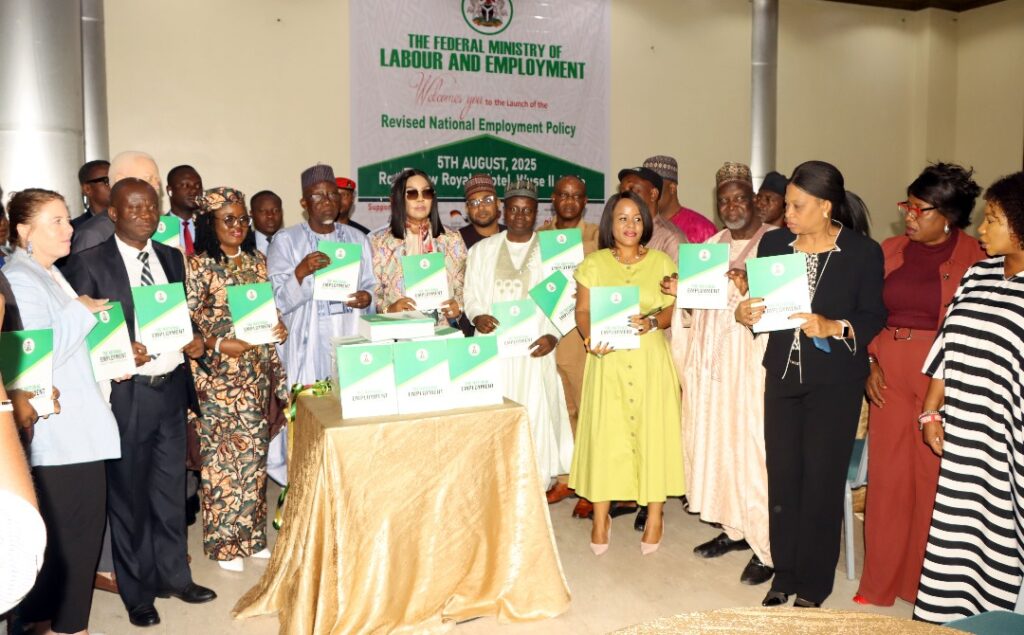From Atiku Sarki, Abuja
The Federal Government, through the Ministry of Labour and Employment and with support from the International Labour Organization (ILO), has launched a revised National Employment Policy (NEP) to tackle Nigeria’s employment challenges.
Minister of Labour and Employment, Muhammad Maigari Dingyadi, who unveiled the policy in Abuja, described it as central to lifting millions of Nigerians out of poverty.
The minister said the revised policy offers bold, inclusive, and future-ready solutions aimed at creating a labour market that delivers inclusive growth, equity, productivity, and sustainability for all Nigerians.
Dingyadi explained that the revision was necessitated by Nigeria’s challenging employment landscape marked by high youth unemployment, underemployment, informality, gender disparities, and regional inequalities.
He also noted that the COVID-19 pandemic exposed Nigeria’s vulnerabilities and highlighted the need for adaptive and progressive employment policies. Furthermore, global trends such as automation, climate change, digitalisation, demographic shifts, and geopolitical uncertainties require innovative responses — which the NEP 2025 seeks to provide.
“The NEP 2025 is a strategic compass aligned with Nigeria’s National Development Plan (2021–2025), ECOWAS Labour and Employment Protocols, the African Union’s Agenda 2063, the Sustainable Development Goals, and the ILO’s Future of Work Initiative,” he said.
He added that the policy supports President Bola Ahmed Tinubu’s Renewed Hope Agenda, focusing on job creation, youth empowerment, enterprise development, digital innovation, and inclusive growth.
Dingyadi stressed that employment is not just an economic goal but a tool for social justice, national security, and sustainable development. The policy aims to formalise the informal economy, boost employability, and unlock emerging sectors for job creation.
He called on all stakeholders, including state governments and the private sector, to domesticate and implement the NEP, urging collaboration to design skills programmes, invest in employment-rich sectors, and support workplace innovation.
The minister also sought the continued support of development partners to strengthen national capacities, build employment data systems, and ensure inclusivity for youth, women, and persons with disabilities.
In her goodwill message, Ms. Vanessa Phala, ILO Director for Nigeria, Ghana, Liberia, Sierra Leone, and Liaison to ECOWAS, highlighted the importance of policy coherence across employment, education, social protection, labour migration, and skills development.
She commended Nigeria’s progress in policy administration based on empirical research and data-driven analysis and welcomed the revised NEP as a shared commitment to advancing sustainable employment and decent work.
Represented by Austin Erameh, Ms. Phala emphasized the policy’s comprehensive framework to enhance vocational training, promote investment in high-potential industries, and support workforce inclusion.
Other stakeholders including representatives from the Nigeria Labour Congress (NLC), Trade Union Congress (TUC), Manufacturers Association of Nigeria (NECA), and GIZ expressed their commitment to supporting the policy’s implementation.
